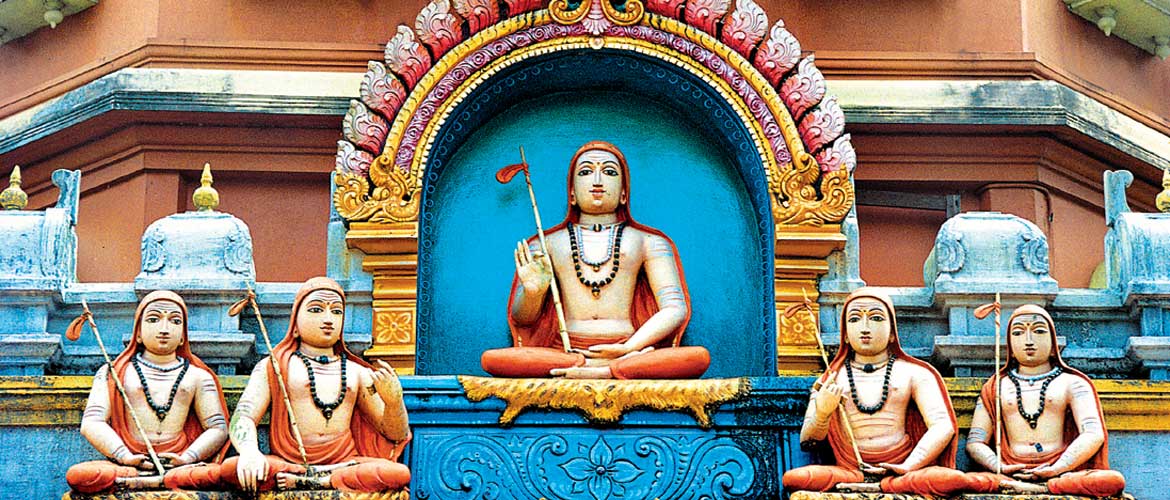On this auspicious celebration of Guru Pūrṇimā, the full moon of July 13 draws our attention to the fullness of knowledge that the saints, sages, and scholars of India have contributed to the world. We offer our gratitude to them for the sublime wisdom they impart – wisdom that empowers each of us to live a more fulfilled and enlightened life, in harmony with Nature and the world around us. The spirit of the occasion also calls upon each of us to do our own part to ensure that these ancient forms of knowledge continue to be protected and preserved so that they can be transmitted to future generations.
Guru Pūrṇimā is celebrated by Hindus, Buddhists, Jains, and Sikhs all across India. In each community, it is a time dedicated to recollecting key events in the transmission of knowledge from the gurus from each tradition to their disciples; and at each step along the way, the distinctiveness of different elements and teaching lineages, whose internal diversity so enriches Hinduism, are recognized and revered.
For instance, within the Hindu tradition, on Guru Pūrṇimā the sage Veda Vyāsa, famous for his role as compiler and teacher of the Vedas, and often credited for his compilation of a number of other foundational Hindu scriptures, is honored with a special puja.

For the Śaṅkarācāryas, among whom the tradition of worshipping Vyāsa seems to have originated, it is a day for honoring the ‘guru principle’, and expressing gratitude and wonder at the transmission of knowledge down through the generations. Their gratitude to Vyāsa is expressed in an elaborate pūjā by offering of lamp light, camphor, grains of rice, and colorful powders. Finally, the pūjā is offered to subsequent custodians of the tradition, as if to make it clear that what is being venerated is not just one historical person, but the very idea of inspired teachers and faithful students who ensure the preservation of cherished scriptures.
Traditionally, Guru Pūrnimā also marks the time each year when ascetics shave their heads and begin four months of dwelling in one place to wait out the rainy season. Wandering yogis, who during of the rest of the year had to beg for their food and had taken a vow not to stay in one place for more than three days, were given the opportunity to study and teach the scriptures. In other words, the ascetics would first honor the past transmission of scripture, and then honor the tradition by putting it into practice through their own experiences of the scriptures, by studying and teaching.
Thus, Guru Pūrnimā honors long and ancient tradition of stewardship and preservation of the knowledge contained within sacred texts.

Muktabodha is dedicated to preserving and making accessible to the world the endangered texts of classical India. Our collections include, among others, priceless manuscripts from Vedic, Kashmirian, Nepalese, and South Indian Shaivite traditions. Muktabodha’s goal is to do everything possible to help ensure that this living knowledge remains available for all humanity. In this way, we uphold a special connection to the spirit and practice of celebrating Guru Pūrṇimā.
We invite you to continue your meaningful support for this work in honor of Guru Pūrṇimā. As always, we are deeply grateful for your generosity that helps us to ensure this ancient wisdom will continue to be available for generations to come.

